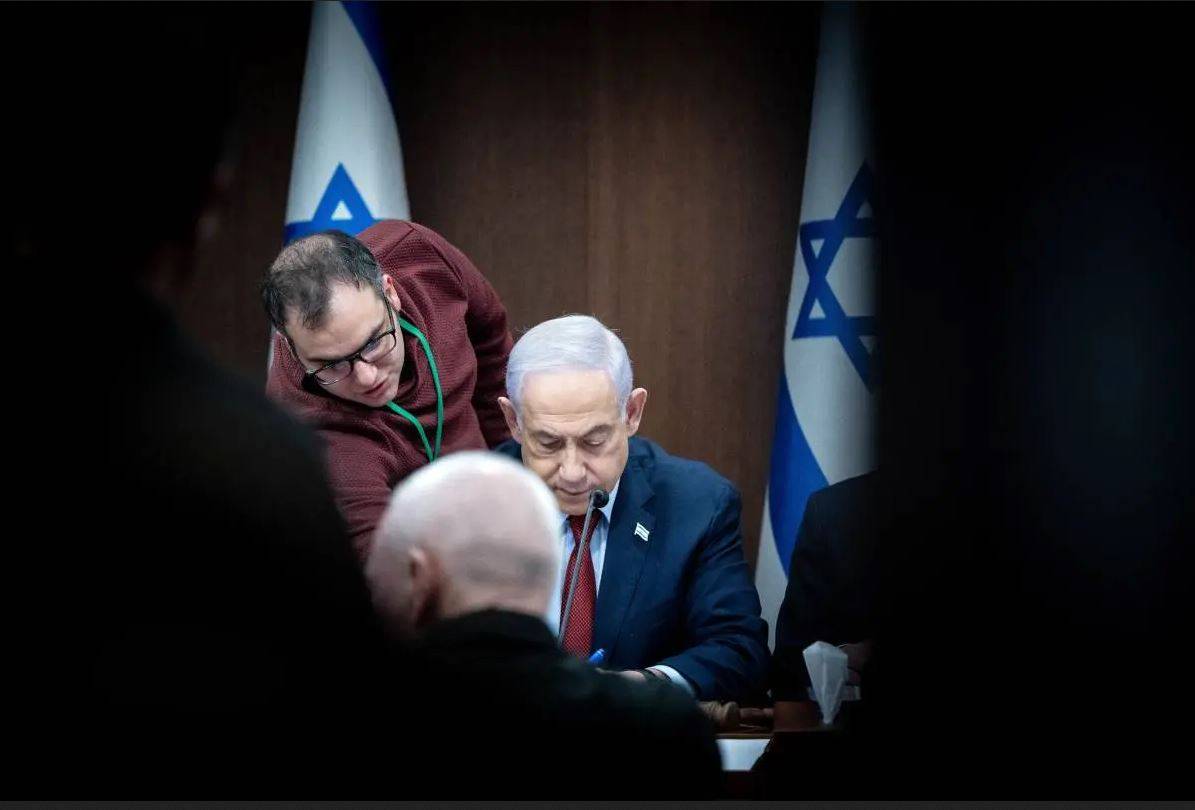286 Views
The October 7 Reckoning: Can Netanyahu Survive the One Committee He Fears Most?
Opposition groups are now pushing hard for the creation of a state commission of inquiry, and although Netanyahu fiercely opposes it, the historical record of such committees inside the Israeli regime shows that they can reshape the political landscape in dramatic and irreversible ways.
In the Israeli political system, State Commissions of Inquiry are among the most powerful tools for probing major national crises. These committees are designed not only to uncover the facts behind catastrophic failures but to hold top levels of government accountable and extract lessons for the regime’s future survival. After the Al Aqsa Flood operation on October 7, 2023, which left around 1,200 Israelis dead and 251 captured, and now that a temporary ceasefire in Gaza is in place, the push to form such a committee has intensified.
While Netanyahu continues to block the effort, the historic precedent of these committees demonstrates their extraordinary influence. Their origins go back to the British Mandate era, and after 1948, the mechanism evolved to become a legal instrument through the 1968 Commissions of Inquiry Law. Under this law, committee chairs are appointed by the President of the Supreme Court, typically retired judges, who wield judicial-level authority: summoning witnesses, accessing classified documents, and issuing binding recommendations. Since the law’s passage, more than 20 state committees have been formed.
These bodies often emerge under public pressure and national crises. Governments are not legally forced to implement their recommendations, but political and media pressure, along with opposition forces, usually corner them into compliance.
Key precedents include:
• The Olshan-Dori Committee (1954): Formed during the Lavon Affair, it exposed tensions inside the regime and forced Defense Minister Pinhas Lavon to resign.
• The Agranat Commission (1973–1974): Formed after the Yom Kippur War, it led directly to the resignation of top military commanders and eventually Prime Minister Golda Meir herself.
• The Kahan Commission (1982): Investigated the Sabra and Shatila massacre and forced Ariel Sharon out of the Defense Ministry.
• The Winograd Commission (2006): After Israel’s failure in the Second Lebanon War, its scathing report collapsed the political standing of Prime Minister Ehud Olmert and removed the army chief of staff.
• The Shamgar Commission (1995): Formed after the assassination of Yitzhak Rabin, it reshaped security protocols for Israeli leaders.
These committees, semi-judicial in nature, publish public reports and often trigger structural changes. Since 1968 they have been marketed as the “trust anchors” of Israeli democracy. Still, forming them requires either a government decision or a two-thirds Knesset majority.
Here’s the interesting bit: during Netanyahu’s premiership, not a single state commission has ever been allowed to take shape. In 2010 he blocked the formation of a committee after the Carmel fire disaster. In 2011 he even dissolved the ministerial body responsible for dealing with state audit reports, pushing everything under his office’s control, where all recommendations conveniently died.
The Al Aqsa Flood Turns Up the Heat
The October 7 operation, executed by Hamas and other Palestinian resistance groups, is widely considered the greatest security failure in Israel’s history. About 5,600 fighters entered in three waves, created 21 battle zones, killed 1,200 and captured 251 Israelis. Israeli society was stunned into silence, and almost immediately after the initial shock wore off, the call for a state commission began.
Families of victims, survivors, and senior former officials demanded a fully independent investigation. The Supreme Court has repeatedly pressured the government to decide, but Netanyahu keeps pushing it “until after the war,” an excuse that has become politically embarrassing. Polls show 80 percent of Israeli residents support forming the committee.
Intelligence chiefs have already started pointing fingers. In March 2024 Shin Bet acknowledged it had received warnings about Hamas plans but ignored them, blaming Netanyahu’s policy of allowing Qatari money into Gaza. In February 2025 the IDF formally admitted to a “total failure.” In March 2025 Shin Bet chief Ronen Bar bluntly stated that political arrogance and strategic blindness at the top, including by Netanyahu himself, caused the disaster. Even more recently, top commanders have echoed the same narrative.
The Knesset, after physical confrontations between families of hostages and security personnel, even approved the opposition’s demand to establish a committee. Yet Netanyahu still refuses any independent oversight mechanism.
What Happens to Netanyahu?
A fully empowered state commission of inquiry could be catastrophic for Netanyahu. These bodies can directly question a sitting prime minister and issue findings that destroy political careers.
A previous independent review has already blamed him for egocentric decision-making, silencing critics, and creating conditions that led to the 7 October disaster. Netanyahu is desperate to replace a state commission with a government-controlled committee that he can manipulate.
If a genuine independent committee forms, Netanyahu’s chances of re-election plummet, and rivals like Lapid or Gantz would seize the opening. With 64 percent of Israelis demanding accountability, Netanyahu’s resistance risks further damaging his public legitimacy.
The fight over forming this committee is turning into a showdown between the judiciary and public opinion on one side, and Netanyahu’s cabinet on the other. He is trying to buy time by offering a neutered, government-directed version.
If the committee ultimately forms, it could mark the end of Netanyahu’s era, very similar to Golda Meir’s downfall. Will it lead to his criminal prosecution? Probably not immediately, but political collapse is certainly within reach.
https://jiss.org.il/en/siboni-winner-a-commission-of-inquirysolution-or-problem/
https://israeled.org/israels-state-commissions-of-inquiry-law/
https://www.irna.ir/news/84974704
https://israeled.org/agranat-yom-kippur-war/
https://www.jewishvirtuallibrary.org/winograd-commission-final-report-january-2008
https://versa.cardozo.yu.edu/justices/shamgar-meir
https://www.haaretz.com/israel-news/2025-11-02/ty-article/.premium/netanyahus-long-list-of-excuses-to-delay-an-october-7-state-commission-of-inquiry/0000019a-4157-dec4-a7db-f7f7e61b0000
https://irna.ir/xjVKmL
https://www.baharnews.ir/news/518151
https://www.tasnimnews.com/fa/news/1404/02/08/3301275
https://farsi.palinfo.com/2025/10/16/594613/
https://www.isna.ir/news/1403121309359
https://fa.shafaqna.com/news/2146922/

Comment
Post a comment for this article